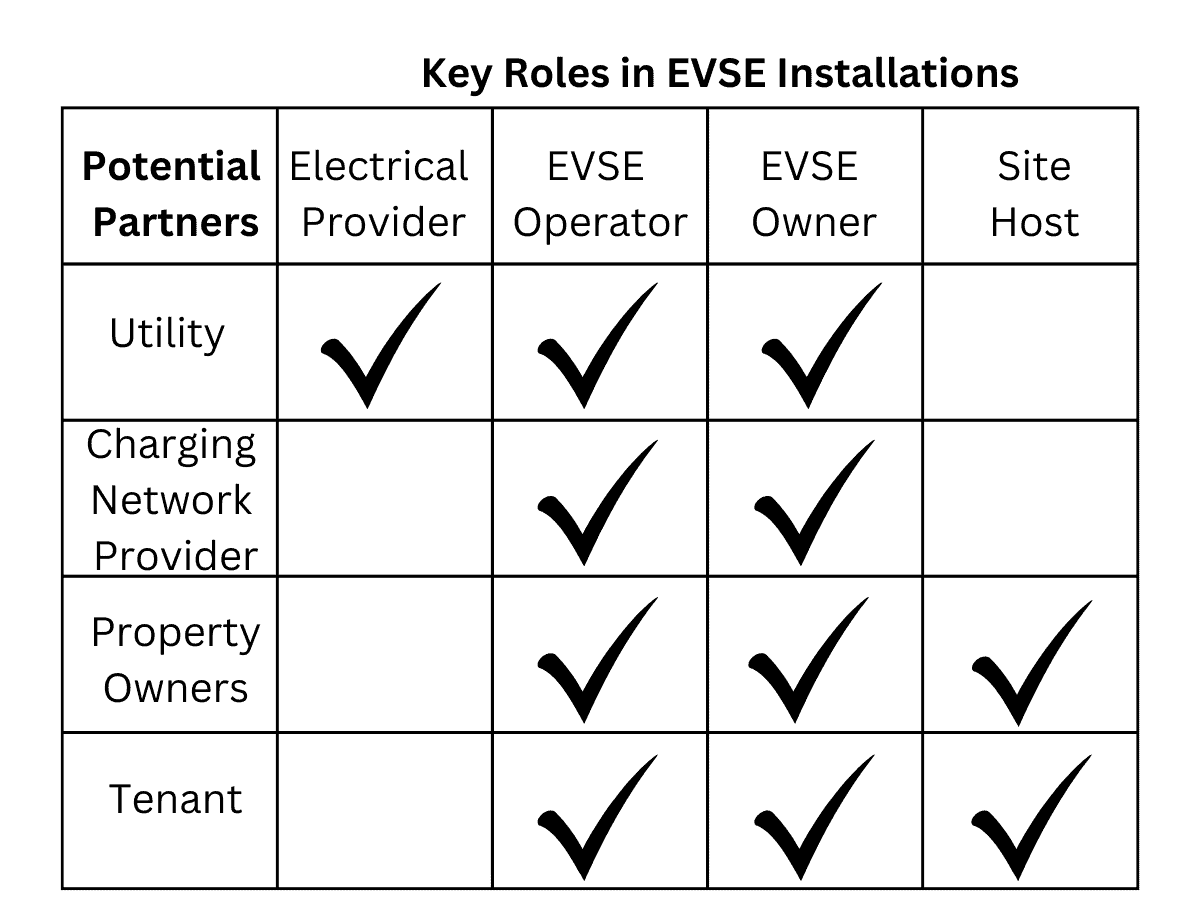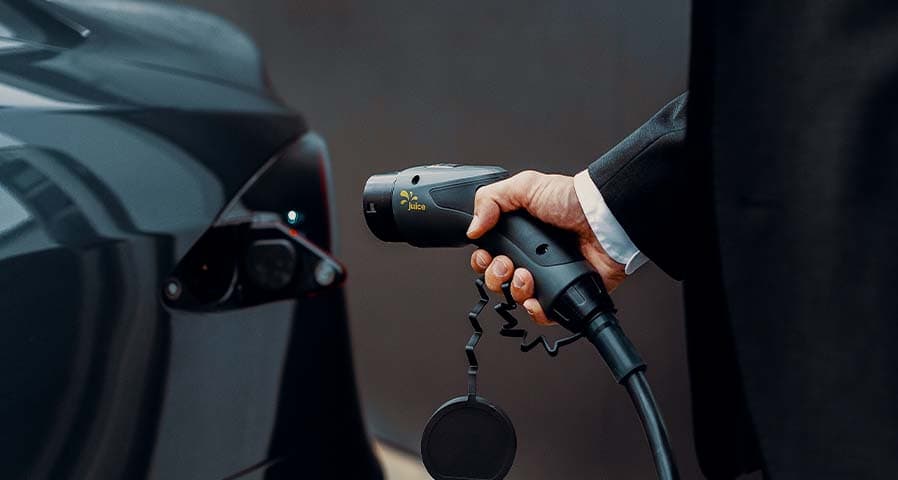Almost everyone is familiar with the responsibilities of your electrical utility provider. The utility delivers electricity and provides customer services that include meter monitoring and billing. Utilities also play a major role in EV charging infrastructure. This is why your EVSE installation should always include a partnership with your utility provider. In fact, your utility partner should be the first one you contact during your planning stage.
Partnering with your utility at the start of your EVSE planning stage helps ensure you are not making costly changes at a later date. Utilities are investing in the deployment of EVs and the necessary infrastructure, making them the ideal partner. In 2020, state regulators approved over $760 million in utility investments to help increase vehicle electrification in urban and rural areas.
Here’s an example of a Utility Make-Ready Program to help explain the role utilities play in planning and developing EV charging infrastructure.

Adding to the importance utilities play – The Electric Highway Coalition (a combination of 14 major utilities serving over 60 million customers) is planning on creating “one seamless network of chargers from West Texas to the Gulf of Mexico and all the way up the Eastern seaboard.”
While your utility provider should be one of the first calls you make when developing an EV charger plan, there are other partnerships that can be just as advantageous. We suggest reading, Consider These Partnership Opportunities for EV Infrastructure.
Why It’s Vital to Have a Utility Partner
Partnering with a utility provider is either necessary or beneficial for the following reasons.
- The utility can help you address grid-level constraints that often appear on large-scale projects. The utility can also provide information about electrical costs and supply to your proposed infrastructure sites.
- During the EVSE installation planning process, the utility can help explain grid limitations and any necessary upgrades. This will help you decide on the best installation model that includes electricity rates and pricing structures for drivers using the charging stations. The utility can also provide technical support as needed.
- Utilities can help you find applicable rebates and other financial incentives that will help offset installation costs. Some of the rebates may be offered by the utility or one of their partners.
You will also want to partner with Tribal utilities when it applies to your area. Tribal utilities can be the liaison between other Tribal Government entities necessary for securing approval to install EV chargers on tribal lands.
A Look at the Different Types of Utilities
The United States has around 3,000 electric utilities that fall into one of the four following categories.
Investor-Owned Utilities
Nearly 75% of customers rely on investor-owned utilities (IOUs). This type of utility is owned by shareholders that structure rates and other operational aspects according to current regulations.
IOUs originated in large cities where electrical demand is high. The high demand made a strong case for individuals and businesses looking for investment opportunities. Now, IOUs operate in almost every state and have a large presence in rural communities.
Publicly Owned Utilities
Publicly owned utilities (POUs) are managed by federal, state, or local governments. Some are managed by large subdivisions. POUs are generally smaller in scope than IOUs and lack some of the resources available to larger utility companies. POUs are also less regulated and have more flexibility when it comes to forming partnerships.
Cooperatives
Cooperatives (co-ops) are non-profit utility companies that are typically found in rural areas. Currently, co-ops have a presence in 47 states. There are a couple of different types of co-ops. Distribution co-ops deliver electricity to customers while generation and transmission co-ops produce or purchase electricity that can be sold wholesale to distribution co-ops.
The passage of the 1936 Rural Electrification Act saw the expansion of co-ops to provide electricity to areas not severed by IOUs and POUs. Co-ops are also not held to the same strict regulations as IOUs, making it easier for them to create partnerships.
Tribal Utility Authorities
Tribal governments form tribal utility authorities (TUAs) to regulate, control, and assume responsibility for delivering power to customers on tribal lands. TUAs are formed to address issues with power outages and poor service from IOUs and POUs that are common problems on tribal lands. The TUAs help ensure power is going to all residents, even those living in more remote locations. TAUs are also helping to expand economic opportunities and improve the health of Tribal land residents.
Identifying Your Utility Partner and Making Contact
Your EVSE installation starts with finding a utility partner, and this can be complicated. Often, more than one type of utility is operating in your area. Becoming familiar with the various types of utility providers will make it easier to determine which one is providing service to your proposed installation site.
Contacting a utility provider isn’t difficult. However, your approach may vary depending on the type of utility. Sometimes it is best to work through your charging partner since they have established relationships with the utility. This is when Apogee Charging Solutions can help. We can contact the utility providing power to your proposed EV charging installation site. We can also help explain any grid challenges and help you create an installation plan that works for everyone involved. Contact us today by calling 484-816-2076, emailing [email protected], or schedule a call that fits your need by clicking the button below.








0 Comments